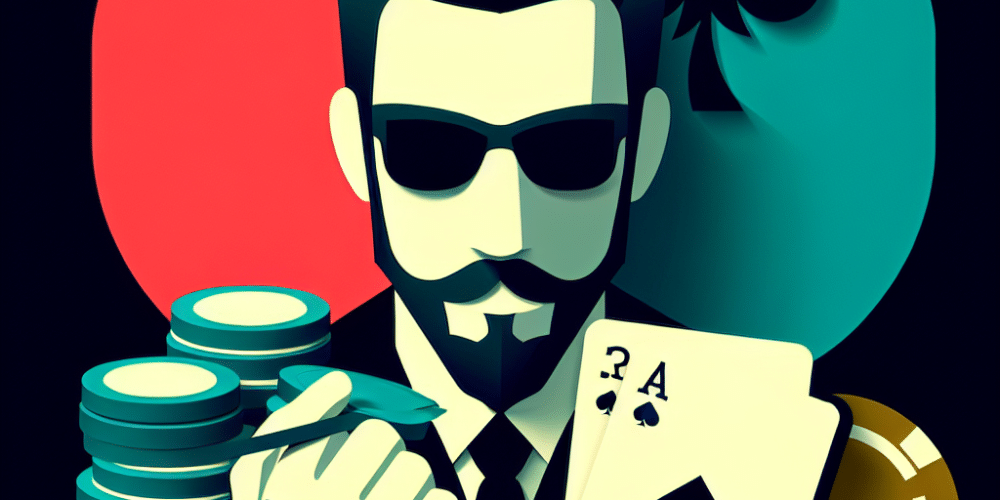Professional poker player Steven Jones has been officially announced as a contestant on the second season of “Squid Game: The Challenge,” highlighting the crossover appeal between poker strategy and survival game shows. The announcement came on November 4, 2025, and has since ignited conversations within the poker community about the strategic similarities between high-stakes poker games and the psychological strain of survival-based reality TV.
Steven Jones, known for his analytical approach and ice-cold demeanor at the poker table, is bringing his unique skill set to the high-pressure world of “Squid Game: The Challenge.” This show, inspired by the globally popular South Korean series “Squid Game,” thrusts participants into intense and often grueling challenges where strategic thinking and mental fortitude are paramount. It’s a natural fit, some say, for poker players who are accustomed to reading opponents and calculating risks under pressure.
“Poker is all about strategy and the ability to read people,” Jones remarked as he prepared for the filming of the show, reflecting the excitement and anticipation from his fans and friends. This transition into a reality competition, where both physical and mental agility are tested, offers a fresh platform for poker professionals to showcase their strategic prowess.
The inclusion of Steven Jones in the show has sparked debate among poker enthusiasts and analysts. While some see it as a valuable opportunity to spotlight the strategic depth of poker beyond the felt, others question whether the game show setting, with its potentially exaggerated stakes and dramatized scenarios, truly reflects the intricacies of poker as a mind sport.
Jones’s participation in “Squid Game: The Challenge” also comes at a time when the poker industry is navigating shifts in market trends. With the rise of online poker platforms and increasing global interest in televised poker tournaments, the game has seen a resurgence in popularity, drawing in a younger, diverse audience. The crossover into mainstream media through reality TV could further amplify interest in poker, attracting viewers who might not have previously engaged with the game.
For Jones, this venture is about more than just winning a game show; it’s an opportunity to challenge himself and explore the limits of his strategic thinking in a completely new environment. The stakes in “Squid Game: The Challenge” are high, not only because of the substantial prize money but also due to the intense psychological pressure that contestants face. Just as in poker, where a single decision can lead to a significant shift in momentum, contestants must remain vigilant and adaptable.
Not everyone in the poker world is convinced, however. Critics argue that comparing the complexities of a reality TV show to a poker tournament oversimplifies the skills required in professional poker. They contend that while both involve strategy, the unpredictable nature of television entertainment introduces variables that don’t exist in standard poker play.
Despite these criticisms, the inclusion of Jones in such a high-profile show highlights a growing appreciation for the strategic elements of poker. Television producers and audiences seem increasingly interested in the psychological and tactical aspects of the game, which could lead to more poker players being featured in similar crossover media opportunities.
Looking at the broader industry context, the poker world continues to evolve with technological advancements and globalization, factors that are expanding its reach. Online poker, in particular, has become a significant force, with platforms offering real-time games to players worldwide. This digital expansion parallels other sectors where traditional formats are adapting to modern technology, a shift that seems to resonate with the themes explored in “Squid Game: The Challenge.”
Jones’s journey on the show will be closely watched by both poker fans and reality TV enthusiasts. As he navigates the challenges, his background in poker is expected to serve him well, providing a framework for decision-making and risk assessment. While the game show’s environment is undoubtedly different from a poker tournament, the core skills of observation, patience, and strategic planning remain relevant.
The intersection of poker and reality TV, as exemplified by Jones’s participation in “Squid Game: The Challenge,” offers an intriguing case study of how traditional games can be reimagined in contemporary entertainment. It raises questions about the future of poker and its place in popular culture, as well as the potential for poker professionals to apply their skills in diverse and unexpected settings.
As the new season unfolds, viewers and poker enthusiasts alike will be keen to see how Steven Jones adapts his poker-honed strategies to the multi-faceted challenges of the game show. Whether he emerges victorious or not, his involvement is already generating buzz and fostering a deeper appreciation of poker as a strategic game that transcends its traditional boundaries.

David Harrison stands tall in gambling journalism, marrying his firsthand casino experiences with a deep understanding of betting psychology. His articles transform complex gambling jargon into engaging tales of strategy and chance, making the world of betting accessible and enjoyable. David’s knack for narrative extends beyond print, making him a sought-after speaker on gambling trends and future bets. In the realm of gambling, David is both a scholar and a storyteller, captivating readers and listeners alike.
















